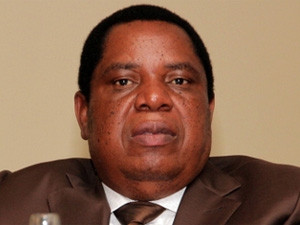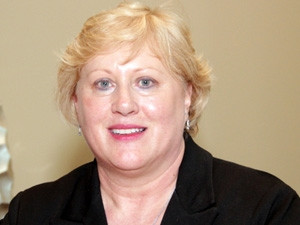
A project gone bad, a vastly higher net loss, and a plummeting share price all plague JSE-listed Gijima as it seeks to bed down a turnaround strategy and return to profitability in the new financial year.
Gijima has, yet again, embarked on a turnaround strategy, despite previous management wrapping up a restructuring that was meant to enable its vision 2025 and position the company for growth.
This week, it revealed a three-year-old project had cost it more than R160 million, which weighed on its results and contributed heavily to its R211 million loss.
The problem was due to non-performance by a sub-contractor - Anderson Scanning Technologies - which had neither the working capital nor the equipment to deliver on a government contract.
Soul-searching
Interim CEO Eileen Wilton says the right-sizing is not done yet and there are a number of areas that will be driven in a tough way this year. "We've gone back to the beginning, back to basics."
Gijima has been pulling costs out of the company's structure and is now saving R20 million a month.
Its staff complement has dropped from 2 000, after 850 staff were removed. Some 350 went with MineRP when it was sold, while Absa took over 500 when it took an outsourcing contract internal. Only 91 people were retrenched.
Chairman Robert Gumede says selling MineRP went from being a move to get out of non-core businesses to becoming a must-do. He said Gijima had to take action at board level to correct what was going wrong.

Gumede says 2013 was a "very difficult year" and required much soul-searching. He says this was probably the first time Gijima took a long, hard look in the mirror and sought to bring back the "glory days".
Ten years ago, the company's stock was changing hands at R40. It is now worth a fraction of that, at 99c.
All change
Gijima is making changes that Gumede is confident will yield fruit. Wilton notes Gijima did not lose a single renewal in 2013 and has inked R3 billion-worth of future deals, one of which is on an indefinite basis.
The listed company has a new management team after its former CEO, Jonas Bogoshi, resigned last year, followed by CFO Carlos Ferreira. The company has been through restructuring, yet it emerged this week that the work was insufficient, and more costs had to be removed.
Gijima is still trying to recover from the costly Who Am I Online deal with Home Affairs, which the department cancelled in April 2010. The implementation was finally resolved in January 2011, costing Gijima R374 million, which wiped out its bottom line that year.
Last year, it narrowed its headline loss to R50.7 million, from R208.97 million. 2012 was a challenging year, as it went through a restructuring phase after losing half of an Absa contract, and a large portion of a State IT Agency deal to provide desktop services to the police.
Cash-raising
It has since raised R150 million in cash after a rights offer. The bid was backed by long-term shareholders, including Gumede's Guma, which pumped in R75 million, Allan Gray (R35 million), Investec (R15 million) and Futuregrowth (R6 million).

Wilton says while Gijima owes both Investec and Futuregrowth money, "in my experience, they don't throw good money after bad". She says this rights offer is a sign of confidence in the company and they did their due diligence.
"They could have just walked."
Net of costs, the rights offer added R135.4 million to Gijima's bank balance. Another R152.3 million came into its cash flow after it sold out of MineRP. However, the company's June year-end cash balance was only R198.6 million, indicating it would have been cash flow negative without the injection.
Wilton says, although she has not studied the cash flow in depth, there is a high probability that the company would have been cash negative without the rights offer. She says, when she took over, she knew drastic action was needed, and put a four-point plan into place.
At the heart of this plan is a bid to grow the top line and bring in new sales, which the company admits it has not always succeeded at. Wilton adds that Gijima needs to keep its customers, and grow its top line.
Irnest Kaplan, MD of Kaplan Equity Analysts, says the question is how easy it will be for the firm to gain new clients who are not familiar with the company. Revenue during the year dropped from R2.2 billion to R1.8 billion.
If Gijima does not have another horrible time in the new financial year and its turnaround is reasonably successful, it will not be in danger in terms of cash as it does have R204 million on the balance sheet, says Kaplan.
However, adds Kaplan, if it has another bad year and another project that goes wrong, it will need a cash injection. He adds that, externally, people may think clients would walk away from long-term contracts considering Gijima's position.
Taking action
One of the steps it is taking is to put sub-contractor Anderson into liquidation in a bid to recoup some of what it spent. Gijima already has a provisional order and is now waiting for the process to wrap up so it can get back some of the advances it paid out that Anderson used for working capital and equipment.
ITWeb attempted unsuccessfully to contact Anderson. None of the numbers listed on its Web site seem to function, and no White Pages contact could be located. Wilton says the company has taken the pain and, as the contract still has some years to run, Gijima should see the benefits flowing through.
Gijima has stepped in and removed the sub-contractor from the job and is doing the work itself. Currently, about 65% of its business comes from the private sector, and 35% from government work. Wilton says Gijima is making plans to make sure it does not rely on state tenders.
Confident
Wilton says the work Gijima is doing is showing, as its operating loss dropped from R50 million to R10 million from the first to second half. She is confident Gijima - barring an economic meltdown - will return to profitability in the 2014 financial year.
While Gijima has had a few problem areas, there are areas in which it has done good work, says Kaplan. "It's not all bad."
Kaplan notes Gumede is capable and determined, and has invested a large amount - through Guma - into the company.
Gumede will do whatever he can to rescue the company, notes Kaplan. He says it is still too early to call the entity's future, and the market will have to wait until the first half to see if there has been progress.
Share